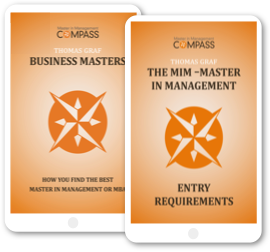Forum: General Forum (4 Comments)
MSc in Europe vs MBA in the US - confusion!
Posted by - KateG1302 - on 13 January 2013 - 1:55pm
Hello,
I am currently applying for MSc programmes in Europe (ESADE, HEC, ESSEC, IE, ...) but have recently started looking at applying in the US as well. However it seems that MSc programmes aren't very popular over there, and most schools only offer MBAs. Also apparently applicants don't need work experience to apply for the MBA programmes?! As far as I know, the MBA is for experienced professionals who want to either change their career or take it to the next level.... so how come the US schools accept applicants with no work experience? I have worked for one of the big 4 for 13 months as part of my undergraduate degree, so have a little work experience, but not enough to be eligible for an MBA in Europe - so I am a little confused as to why I would be eligible for the US. Also I am not sure now whether I should go for an MBA in the US rather than for an MSc in Europe?
Any advice would be greatly appreciated.Many thanks
KatePosted by - KateG1302 - on 13 January 2013 - 3:34pm
Thank you so much Thomas for the quick and extremely helpful reply.
I guess that at the moment, I could apply for the top schools in the US (Columbia MBA, Kellogg, ...) as they don't require work experience - even though their average MBA student has around 5 years and they state that "candidates with no or little work experience may be invited for interviews as an exception" - so I guess the chances of being admitted would be a lot smaller (if not zero!) compared to an MIM in Europe. Also I feel that it would not be beneficial for my classmates to study with a recent graduate like me, especially if they have experience in leadership positions and have worked for more than 3 years. So I guess the best step for me at the moment is to do an MIM, and maybe at a later stage I can always do an MBA if beneficial for my career...?
I already have a basic general management education through my BSc degree (International Business & Management), so would like to specialise and pick specific electives in my postgraduate degree, which is something most EU B-Schools offer. I'm not sure if I am going to stay in Europe after graduation, I am open to move anywhere as long as the job sounds appealing to me.Thanks again for your reply, it has helped me and I think I will just stick with an MSc for now.
Many thanks
KatePosted by - Thomas Graf - on 13 January 2013 - 4:31pm
Kate,
everything that you write above makes totally sense to me. Just be sure to choose a MIM program that requires a first degree in business or economics. By this, you avoid redundancy between your master's and your undergraduate's curricula. You can use the Filter "Entry requirements" in our search filter.
All the best
Thomas
Posted by - Thomas Graf - on 13 January 2013 - 2:38pm
Hi Kate,
thank you for your post. There are several points that you raise and I will try to comment on all of them.
The Master in Management (MIM) indeed is most popular in Europe. It does exist worldwide, Australian schools for instance offer Masters of Management, and in the US they seem to become more popular. But clearly, MIM programs are most popular in Europe. A potential reason for this is the European Bologna reform that transformed European education systems from 5 year diploma to 3 year bachelor + 21 / 1.5 / 2 year masters. Since, the European tradition was used to 5 year diploma programs, 3 year bachelor programs naturally developed a demand for masters to come ot the same qualification level as with 5 year diploma. At the same time, the bachelor master system created an extra demand just by the new option to choose a different topic after 3 years. People studying humanities as an undergraduate degree, for instance, were able to study business as a masters now.
And because traditionally the European education lasted 5 years, MBA programs grew for people with 3 or more years of work experience (also you can find European schools that accept 2 years).
In the USA, the system was different. People did their 3 year bachelor, started to work and went back to university sooner than Europeans. For this postgraduate education, the Master of Business Administration still required work experience - but from all that I know it is not that strict as in Europe. I would be surprised, however, if you find a renowned school that accepts graduates without work experience for an MBA - because an MBA IS for people with work experience - the only question is "How much needed?". I found examples from renowned US schools that excepted graduates - but as an exception. Their focus clearly was on people with work experience - they just didn't close the door for graduates as in Europe.
At least, this is my impression from the experience of being many years in the management education business. There are actually some renowned schools in the US that offer Masters in Management. Think about Thunderbird or Richard Ivey.
As for your question what to do now, I recommend: First, figure clearly out your options. In Europe you can go to top schools for an MIM. Can you go for top schools in the US right now?
Second, try to make a decision based on what you need NOW. If you need general management education now (and maybe also want to work in Europe after graduation), maybe better choose a MIM. Some years after graduation you can still go for an MBA (fulltime, parttime etc.).
Does that help?
Best wishes
Thomas









